
With the Samsung Galaxy Watch5 and Watch5 Pro, the company joins the ranks of other entities stamping products with the ‘Pro’ moniker. Sometimes that designation is deserved, and other times it’s little more than marketing. This time around, Samsung appears to be courting portions of the adventure crowd with this new Pro model, which boasts not just significantly higher battery life, but also features specific to trails, like navigation from a .GPX file, a compass watch face, and Track Back.
The Pro model also differentiates itself with different materials, including a titanium case and a higher hardness level sapphire crystal display. However, as with the base model, it runs Google’s Wear OS, which Samsung switched over to last summer/fall as part of a platform shift. While we’ve seen incremental feature updates to Wear OS, it hasn’t resulted in significant battery savings for the platform. Thus, Samsung appears to be taking measures into their own hands by just stuffing a giant battery in there. The company is claiming up to 80 hours of smartwatch mode, and up to 20 hours of GPS-on time. While these numbers might seem paltry compared to the likes of endurance-focused watches from Garmin, Polar, and Suunto – they are, on paper anyways, a big step up from years past (or Apple’s numbers).
In any case, this isn’t so much an in-depth review, as an early review of the sports features and accuracy. As usual, this review isn’t sponsored. I ordered and bought both the Watch5 Pro and Watch5 (base) units myself, and then simply picked them up at the store this morning. Since then, I’ve been putting it through its paces for the new sports features. However, longer-term testing is of course required, especially on the sleep and battery-related metrics.
With that, let’s dive into it.
What’s New & Pro:
As with years past, there are multiple sizes of the Galaxy Watch series, each with differing batteries and price points. Here’s the quick gist of things:
Samsung Galaxy Watch5 (40mm): From $299/299EUR ($349/EUR for LTE)
Samsung Galaxy Watch5 (44mm): From $329/329EUR ($379/EUR for LTE)
Samsung Galaxy Watch5 Pro (45mm): $469/EUR ($499/EUR for LTE)
There’s a slate of different color options, and even a golf-specific one ($329). Oh, and the ship-date of these watches is set for August 26th, unless you live in the Netherlands, in which case it’s apparently this morning instead.
All the Samsung Galaxy Watch5 units have the following core features:
– Included GPS, WiFi, Bluetooth
– Google Wear OS (operating platform)
– Removable/swappable bands/straps
– Speaker and microphone built-in
– Ability to play music, contactless payments
– New Optical HR sensor, ECG (where allowed by law anyway), and body composition measuring
– Body temperature sensor (for sleeping, this is new)
– New USB-C charging cable that’s significantly faster
– Can charge from 0 to 45% in 30 minutes, can charge 8-hours of sleep in 8 mins
Of course, there’s a slate of software features behind all that, some Google based, some Samsung based. As with Watch4, Watch5 requires an Android phone (previous Samsung Galaxy watches actually worked with the iPhone). Further though, like watch4 it also requires a Samsung phone for certain apps (such as the blood pressure sensing). So in effect, if you want to use all the features, this is basically a watch for Samsung phone users (just like the Apple Watch is only for iPhone users).
So what’s the Pro version got that the base doesn’t have? Ask and you shall receive:
– A bigger battery, which results in longer GPS (20 hours), and standby time (80 hours)
– Titanium bezel, plus a harder sapphire crystal display
– Ability to navigate a downloaded .GPX file (route)
– Ability to ‘Track Back’, to get back to the start of a course
– Magnetic compass watch face
– A different clasp system on the back
Now, it’s worthwhile noting that both Samsung’s size and weight measurements don’t quite match reality. Here’s a video deep-dive into that I did:

Hopefully, we’ll see not just Samsung, but other companies become more transparent in this area.
Navigation & Sports:
Starting off first with the navigation bits, to load a course you’ll need a .GPX file. The actual file, not just a route on a site. In my case, I used Strava to create a route, and then used the ‘Export GPX’ option, to get the file.
From there, I e-mailed it to myself (since that option is really only available on the desktop app), and then I saved it to my Samsung phone’s file structure. Following which I then cracked open the Samsung Health app, and dove into the sport profiles area. Somewhat oddly, how you access the Routes feature varies each time you open it. The first time there’s a tile that suggests you check it out. However, after that, it’s buried deep in the settings. It took me many minutes to re-find it again, well hidden.
Here’s some screenshots of the first route I did, my planned run….before I found out that the route feature only works with Hiking and Cycling, not running or other sport types.
Once found, you’ll select the .GPX file you saved to your phone, and then it’ll import it into Samsung Health. Samsung says you can also share these among your Samsung Health friends, which is kinda handy. Once on your account, it’ll automatically sync to your watch.
Meanwhile, on your watch, you’ll swipe a handful of times to the routes app/widget, which lets you select the course (it’ll also show other saved courses you have if this isn’t your first barbeque). There’s an option to reverse/invert the course as well. You’ll see a small map of the course, though you can’t pinch/zoom/etc here.
With that, tap ‘Start’ and off you go. If you have cellular connectivity it’ll enumerate the map tiles below the route, else, it’ll just be blank (breadcrumb style). It’ll show how far to the next turn, and give you audible turn-by-turn directions. It’ll audibly tell you how many meters to each turn.
If you miss a turn, it’ll notify you about 50 meters later (half a football field), which…is kinda a lot.
Further, it won’t seem to notify you if you happen on a parallel trail that’s within 50 meters (not that uncommon, such as on a different side of a stream), so you could go for quite some time before it notifies you. Overall, it works, but I wouldn’t trust it for anything but very obvious trail routing. The latency on missed turns, combined with the detection for when you’re actually back on the route (especially when I tried a lollipop course), seemed wobbly at best.
In addition to straight navigation, there’s also Track Back, which lets you follow your existing track back to the start. This is not direct to start, but on the precise path you used to get there. So if you made any errors on the outbound, it’ll repeat those on the return. To access this, you’ll swipe to the mid-activity menu, and then select Track back:
At which point, the navigation prompts are identical to regular navigation.
Next, there’s the new compass watch face. This magnetic compass gives you quick access to…well…the compass. It’s not enabled by default, so you need to both enable the Pro Analog watch face, and then tweak the complications to show it.
Once that’s done though, it roughly works. Or, works roughly. As shown in the video, it easily gets confused and points the wrong way if you move it too quickly (and stays stuck). Hopefully this is a bug they can quickly fix. If you move slowly, it stays accurate.
Early Data:
With the Pro features behind us, let’s take a look at the accuracy of the optical HR sensor and GPS first on an interval workout of sorts. Obviously, this is just one workout, and certainly more are slated. However, Samsung outlined this being a new optical HR sensor package. It’s a little fuzzy if it’s just repackaging the existing sensor (since it appears visually identical), or if there is something actually new in the optical HR sensor.
Either way, I aimed to give it a whirl and compared it to the Apple Watch Series 7 on the other wrist (using watchOS9 beta). Further, I had a chest strap (Garmin HRM-PRO), and heck, even the Whoop 4.0 and Oura V3 ring. Here’s the HR chart:
As you can see, it’s actually not that bad. I removed Oura from this screenshot because it’s too messy (but you can see it here, it’s not good this run, a rarity for me). The Samsung Watch5 Pro starts off a bit low/slow, and then quickly overcompensates with a spike. But once you got beyond that first minute or two, it settles out nicely and easily follows along. My plan was to do steady-state running, and then every 2KM do an interval. Then, at the end I’d do 4xVery Hard intervals. For the last four intervals, it was a bit latent on the peak, but not horrifically so.
Meanwhile, on the GPS side, I had the Samsung/Apple watch combo, plus also a Garmin Forerunner 955 and a COROS Vertix 2.
Starting off on a mostly easy path, the Samsung wasn’t quite nailing it. It wasn’t bad, but nowhere near as accurate as the others. It just wandered a bit…but fine, good enough for most.
However, once I got into the downtown building district test with tall buildings and skinny streets, it had a rough go of life. Though, oddly, not nearly as bad of a go as the Apple Watch Series 7 did. I’ve never seen an Apple Watch have that horrific a failure of GPS, in 7 years of Apple Watch units. No idea what happened there, and if perhaps it’s tied to watchOS 9 beta (most recent release two days ago), given I’ve never seen anything remotely this bad before from Apple. But yeah, not ideal.
Setting aside the building sections for both, the rest of the run was mostly fine, with just some wobbles. This is all largely an improvement from Samsung Galaxy Watch4.
Finally, an early look at the battery drain indicates it’s falling short in GPS time. I left the house with the battery at between 99% and 100% (straight off the charge at 100%). When I finished the 50-minute run, it was 91%. So simple napkin-math says about 10%/hour, or 10 hours of battery life (versus the claimed 20 hours of GPS life). I didn’t have always-on enabled, nor music, or anything else. In terms of regular battery usage, it’s still too soon to tell, but right now I’m trending towards 50% per 24 hours, though obviously that’s with GPS time, and a bit of other time for photos and such (but probably less than a normal person dorks with their watch in a day). This particular paired phone/SIM card doesn’t get my usual allotment of notifications, so it lucks out there.
Again, this, as well as the sleep bits are items I’ll be evaluating over the next few weeks.
Wrap-Up:
I suspect we’re going to see more ‘Pro’ watches this fall. However, I’m not entirely certain this specific feature-set lives up to the ‘Pro’ moniker. If the baseline for whether something is ‘Pro’ is whether a professional would use it to get their job done, then from a hiking/trekking/outdoors standpoint, it’d be hard to convince me this unit would accomplish the same task as any of the watches I brought with me last week on my 8-day 170KM trek. The battery alone would have killed this in a single day.
But at the same time, I’m glad Samsung both recognizes the need for more battery (even if a bit chunky), as well as the ideals of having more outdoor features in their watches. While sometimes a bit perplexing, Samsung’s Health app is actually quite deep in functionality, including a slate of structured workouts for a number of sports. In fact, it arguably has far more sports-depth history than almost any watch-maker app out there. At one point it even connected to almost every ANT+ sensor type and more (seriously, go read that craziness from 9 years ago). Those days are long gone, but there’s still lots of interesting nuggets left behind from that era.
And perhaps, this is the start of a new era of Samsung focusing on the outdoors market. A market that Garmin and others have proven is vast, and based on the new Apple WatchOS9 features, it seems like Apple is seeing an opportunity there as well. All of which is good for consumers, either via extending competition, or simply offering more choices.
With that, stay tuned for a full in-depth review down the road.
Thanks for reading!
Found This Post Useful? Support The Site!
Hopefully you found this review/post useful. At the end of the day, I’m an athlete just like you looking for the most detail possible on a new purchase – so my review is written from the standpoint of how I used the device. The reviews generally take a lot of hours to put together, so it’s a fair bit of work (and labor of love). As you probably noticed by looking below, I also take time to answer all the questions posted in the comments – and there’s quite a bit of detail in there as well.
If you're shopping for the Samsung Galaxy Watch5 Pro or any other accessory items, please consider using the affiliate links below! As an Amazon Associate I earn from qualifying purchases. It doesn’t cost you anything extra, but your purchases help support this website a lot.
And of course – you can always sign-up to be a DCR Supporter! That gets you an ad-free DCR, access to the DCR Quarantine Corner video series packed with behind the scenes tidbits...and it also makes you awesome. And being awesome is what it’s all about!
Thanks for reading! And as always, feel free to post comments or questions in the comments section below, I’ll be happy to try and answer them as quickly as possible. And lastly, if you felt this review was useful – I always appreciate feedback in the comments below. Thanks!


![clip_image001[6] clip_image001[6]](https://media.dcrainmaker.com/images/2022/08/clip_image0016_thumb-1.jpg)
![clip_image001[8] clip_image001[8]](https://media.dcrainmaker.com/images/2022/08/clip_image0018_thumb.jpg)
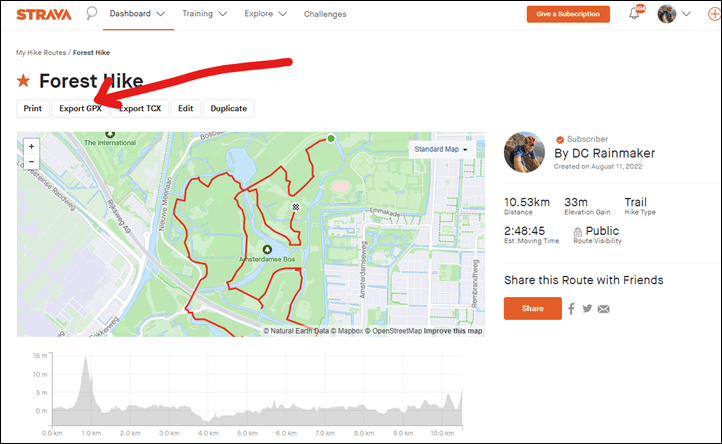
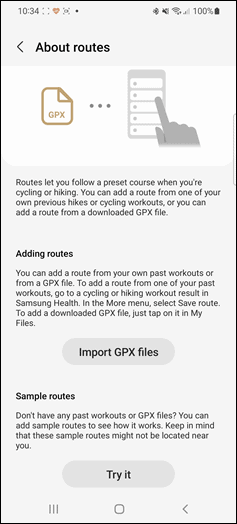

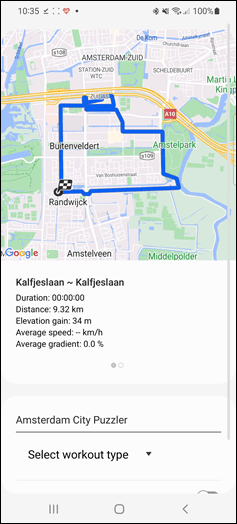
![clip_image001[18] clip_image001[18]](https://media.dcrainmaker.com/images/2022/08/clip_image00118_thumb.jpg)
![clip_image001[20] clip_image001[20]](https://media.dcrainmaker.com/images/2022/08/clip_image00120_thumb.jpg)
![clip_image001[22] clip_image001[22]](https://media.dcrainmaker.com/images/2022/08/clip_image00122_thumb-1.jpg)
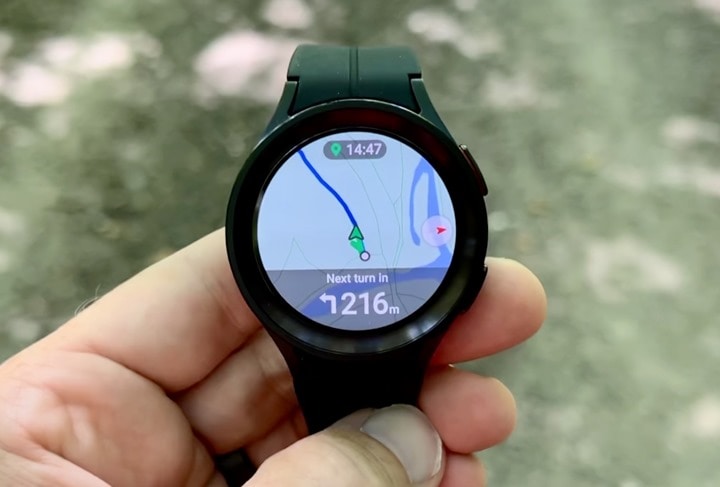
![clip_image001[24] clip_image001[24]](https://media.dcrainmaker.com/images/2022/08/clip_image00124_thumb-1.jpg)
![clip_image001[12] clip_image001[12]](https://media.dcrainmaker.com/images/2022/08/clip_image00112_thumb-1.jpg)
![clip_image001[16] clip_image001[16]](https://media.dcrainmaker.com/images/2022/08/clip_image00116_thumb.jpg)
![clip_image001[10] clip_image001[10]](https://media.dcrainmaker.com/images/2022/08/clip_image00110_thumb-1.jpg)
![clip_image001[14] clip_image001[14]](https://media.dcrainmaker.com/images/2022/08/clip_image00114_thumb-1.jpg)

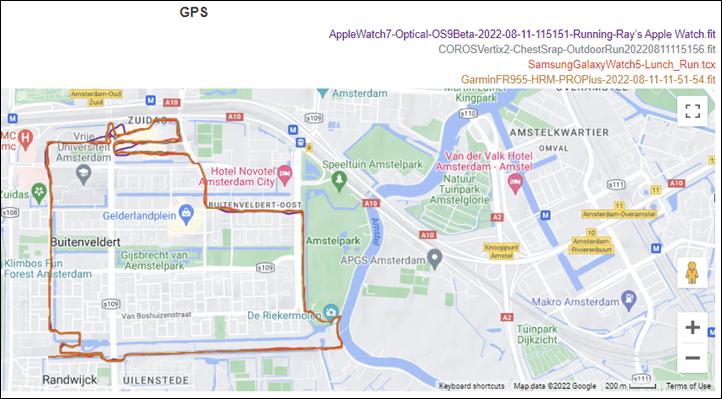
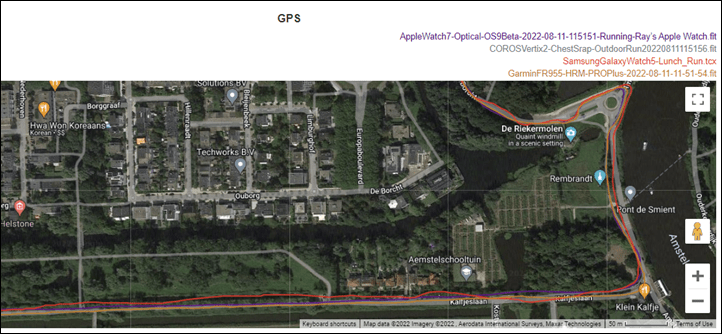
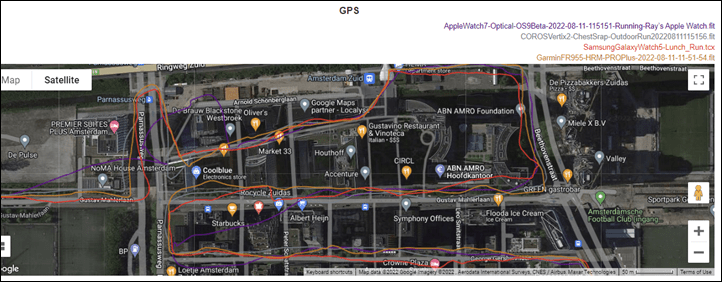
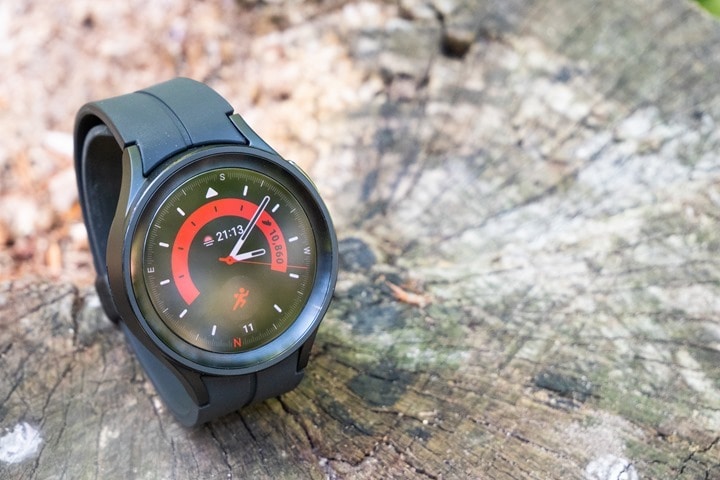
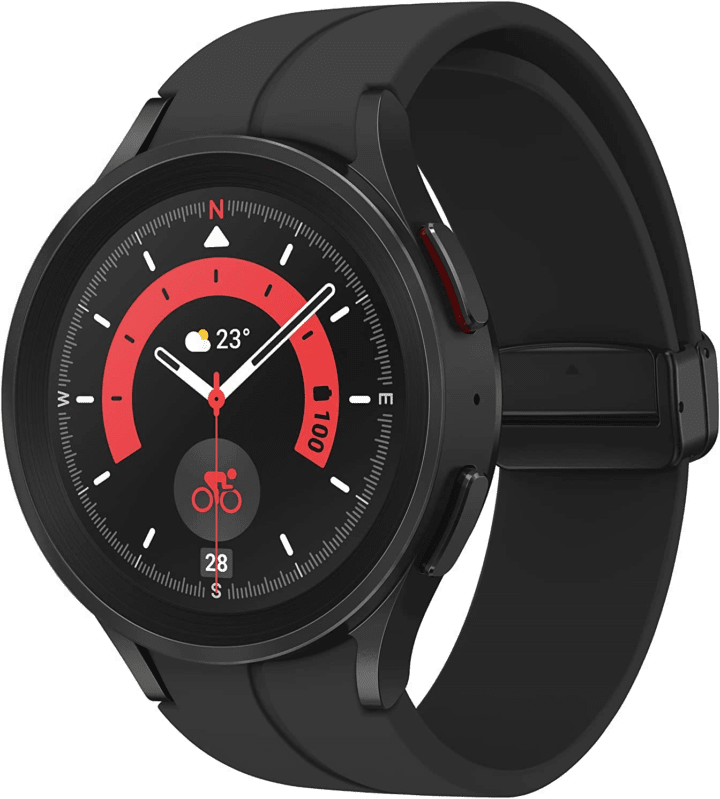
















Hi Ray. I apologize that the comment is not on the topic of the article! What happened to diving into the pros and cons of the FR255 and FR955 and the Instinct 2? Did you give up?
I’m basically waiting for the Instinct 2 to get all the FR255 features (many of them are in beta now). Otherwise, the video/post will basically be null within a week or two of me publishing it, since there’s so many features coming over from the FR255 to the Instinct 2.
Thanks for the reply! Respect!
Does not seem like the added features of the Pro justify the $140 upcharge from the non-Pro. I know that Samsung has a ton of development resources relative to Polar or Suunto (at least I would imagine so) and this is still early for them in GPS sports watch (relatively speaking). Still, maybe a full featured GPS-enabled sport watch is enough outside Samsung’s wheelhouse that this project will aways be that – an uncompetitive project. I suppose the way to think about this is … if I’m already buying the smartwatch and I get the GPS sports part for low cost/free, maybe a useful selling point. But if I’m comparing this to Garmin…Suunto…Coros…Polar…*shakes head*.
Agree, “Pro” doesn’t feel all that “Pro”. I’m pretty sure you can get course follow / track back on a regular Watch 4 as well with a help of a third-party app.
“Pro” here is not short for “Professional”, is short for “Probably you will be able to go a whole day without recharging this time”.
It is ultimately just a toy and nothing for athletes. As long as there are no interfaces to a strap or Polar Sense, for example, such watches are useless.
This is not to say that sports watch manufacturers have missed out on smart development.
However, there are no alternatives for active people to Polar, Garmin or Suunto
Hi! Was there ever an in depth look at the sports and sleep features done for these two watches? Currently trying to decide between watch 5 base or garmin’s venu sq 2.
Great review as always Ray. I look at this as a smartwatch that has additional sport features included.
Didn’t mention the LTE connectivity. Big plus.
I included the LTE pricing above. But Samsung has always had LTE options. However, it doesn’t impact any of the sports/fitness features (except perhaps real-time access to map tiles if in range).
There’s obviously huge non-sports benefits to LTE for some people, though for the most part, most companies don’t provide much sports-specific benefit with LTE. Oddly enough, Garmin does actually provide good sports-specific LTE features, but of course then it falls apart entirely for non-sports LTE features.
There’s an LTE version of those though.
Hello , very good early review, but I Have one question the watch 5 pro has an altimeter or not ?
Thanks and sorry for my english .
Yes it does. Cheers!
Getting rid of the physical rotating bezel was a big mistake.
And they somehow managed to make these look incredibly generic.
100% agree, it looks… bland. Dull. I appreciate it’s a 350€ Samsung, and not a 10,000€ piece of Swiss exotica, but even so they could have made a bit more effort!
I disagree. I am currently using Galaxy Watch 3 with rotating bezel. It is just simply overhyped. Watches are watches, so long as the design is simple, I am fine with generic look. Want to make it unique? There are tons of covers and straps to personalise it.
Physical controls are great, especially when exercising and… you do know which site you are on, right?
As for it looking generic; other devices manage to not look generic. This is something designed to be on your wrist a lot, so it is a piece of jewelry as well as a tool. It’s also something that to look good has to be part of the base design – add-ons simply can’t make a bland design look good.
My point being; there’s no reason for a company as big as Samsung to make it this bland.
Anyway, the battery life still isn’t good enough, so eh.
One of the points which I always stress is Samsung watches would ALWAYS be primarily smartwatch first, fitness watch secondary, while the likes of Suunto, Garmin, Polar would always be primarily fitness watch and smartwatch secondary. The intended market is entirely different.
Hence to a fitness/hiking enthusiast, Samsung would never cut it. I readily admit it – I owned Suunto & Garmin watches before, they are fantastic for tracking runs, HR etc. Their exercise functionalities are very easy to operate and intuitive.
However, the bulk of the targeted audience for Samsung is just your occasional runner or gym goer, hence they want a bit of everything, high customization and not just fitness features (basically a jack of all trades but master of none). Also, the tight integration with Samsung phones. Hence any comparison is a moot point.
On the lack of rotating bezel, while I can see the backlash all over the internet, my guess is Samsung would never go back to it. Any movable component is always prone to failure and it takes up space. They would rather free up the space for a larger battery which would appeal to a larger audience.
Agree, Winston. I want SO much to have a running watch with LTE so that I feel more secure as I am out away from others but the options are slim to none if you are a even a halfway-serious runner. I might have to wear two watches, which is quite comical in this day and age.
Totally agree. The turning bezel was my top reason to go Samsung over other smartwatches, the other being the first new processor for Wear watches in a looong time. If they go generic touch I see one less reason to get a Samsung over anything else. Then I might as well go for a pure fitness watch with a lot of physical buttons for interaction. Samsung sold 12.7 million of the watch 4 variations in Q4, 2021 up from 2 million in Q2 of that same year. In that population, judging from on line comments there are a lot of people being disappointed with the 5 Pro exactly for leaving the turning bezel out. It’s the one feature that can’t be copied as Samsung holds the patent, and in particular can never work on rectangular watch. It doesn’t really add that much height, % wise, but it adds style to the otherwise dead bezel area, functionality and uniqueness.
First heard about you when I bought Garmin mini for hiking Appalachian and John Muir trails. Good job on reviews.
I noticed the map is still visible below a turn indication.. Garmin can learn from that.
It’s still visible on all the Garmin wearables I have?
With Garmin it’s a slightly different problem – there’s no priority for notifications. For example, I’m approaching a route and a turn notification pops up. If at the same moment any other notification from device is triggered (like “Drink”) – it will take over the screen, hiding the turn notification.
Yup, now that I agree with…
I have the Watch4 Classic now and I have been using it for MTB and running now and again. The interface is very basic, but it tracks GPS surprisingly well – or well enough for me. What bothers me is that the HR is very inaccurate or “slow”. It’s really having a hard time picking up spikes in short sprint intervals for example. I hoped to help this with the use of a belt instead, but the watch (The Samsung app) will not accept that. Do you know if it’s possible to use a belt with the Watch5 pro?
No, not natively – at least not that I can find/figure out (which matches the past). There are 3rd party apps though that do pair with HR straps.
The HR data on the YouTube video doesn’t seem bad at all! I’m glad non-sport companies are catching up in the sports features, hope that leads to a more competitive market and better products.
What seems to be still pretty off is the whoop… I’m thinking on trying one but not 100% sure it is going to be helpful if it still struggles with getting correct HR readings. What’s your latest experience with it?
This was actually a surprising mini-fail for me on the Whoop 4 (especially given it was armband/strap). Usually it’s much better than that for running.
Happy to hear that… I’m considering it because I mostly do strength training with 3/4 runs/rides a week and for the gym, with Kettlebells involved, watches are awfully uncomfortable.
Honestly at certain point every sensor fails. I’m a happy user of the OH1 since it appeared and sometimes it also gets wrong readings (super rare I must say).
Getting back to the Galaxy, you think it’s going to be able to shake things up or it’s just so marginal the number of Samsung users that it’s effect is going to be negligible?
If using Whoop as strength, you pretty much have to use it on the armband or sleeve (or, I suppose Whoop shorts). Even then, it will significantly undercut your load, as HR is always lagging for strength (no matter the sensor). Since Whoop only looks to HR for strain, this is an area where HR (again, no matter the device) isn’t ideal.
As for Galaxy, I don’t think it’ll move the dial one way or another significantly. In some ways, the Galaxy watch has become the watch for Samsung people, in the same way that Apple Watch is for iPhone people. These days, those camps become more and more entrenched. I think Samsung could pull more phone sales from non-Samsung users into the camp because of the watch, but that’ll depend on what Google does this fall with Pixel watch.
Yes! Same as the OH1. That’s why I thing it will be less intrusive: as you can move it away from the wrist, you don’t have to be concerned about the bells smashing it. The strain factor I guess will be more “accurate” for conditioning workouts but meh-ish for pure strength ones, right? However that is a part where I suppose every vendor fails: accounting the calories/strain/effect/whatever-metric-the-company-chooses for non-cardio activities.
My point with the Samsung is exactly what you say. Considering Samsung has a large portion of the smartphone sales, if they manage to keep their clients into their ecosystem (I have the feeling that Apple is best at doing it), that could be a considerable loss to Garmin et Alt. I only knew one person with a Galaxy, and the moment he started to ride more, he immediately switched to a Fénix 6, despite liking the smartwatch functionalities of the Galaxy more.
“Body temperature sensor (for sleeping, this is new)”
Really only for sleeping? Btw: have you ever compared the core body temperature sensor with the Garmin “Estimated Body Temperature Data Field”? I have asked this somewhere here months ago, but have not watched it…
“New USB-C charging cable that’s significantly faster”
Sounds interesting. Perhaps Garmin is using this for an upcoming Fenix 8 series etc., too?
I think I have done some comparisons, but I’m pretty sure I never got around to writing them up. They’re buried…well…somewhere.
Hello Ray,
Do I see it correctly: you still can’t connect an external heart rate sensor like Polar H10 or Garmin to the watch so that the data becomes more accurate during training?
Thank you Hans
Correct, at least not natively. There are 3rd party apps that support it though.
Hi, does the watch connect to a power meter when recording? Can it also record slow during workout.? Love the content. Keep it up.
Not natively. I odn’t know which Wear OS apps work offline with a power meter. But I’ll be doing some digging there (I do know one that works with Stryd for running though, which is GearTracker, and that also supports HR straps too: link to play.google.com
Sportygo works with Bluetooth sensors. Including my stryd using my Ticwatch E3. Bluetooth sensors is a add-on package. About £2 iirc. Also uploads via the app to Strava. TP and final surge
Hi, Ray! Great to see you covering these two 5-series watches. I’m still using my trusty old TomTom Spark for my outdoor running but the older I get, the more I worry about being far away with no communication for help, so I started investigating the Samsung watch. I didn’t even realize when I started this search a couple days ago that it was the day that Samsung introduced the 5 model! When I discovered this, I came to your site and saw nothing. I was disappointed! Now, I can be happy again!
I couldn’t find on the site where you reviewed the 4-series. If you did, I would love to hear your thoughts on that versus the 5-series and the 5-pro, especially with regard to sensor accuracy.
Thanks for doing what you do! Your in-depth analysis added to your mountains of experience make our decisions so much easier.
Thanks!!!
I didn’t do a full written review of the 4 series, but did a video review: link to dcrainmaker.com
Yes, I actually did find that after my post but it was so early in the lifecycle of it. I wondered if it ever improved, especially regarding the HR monitor just stopping completely. That for me (and I imagine most others) is a complete deal-breaker. I look forward to your long(er)-term review of the 5. Thanks for responding!
hello i am blind user who plan to buy galaxy watch 5 pro but i would like if you can descrybe haptic in the watch and show some speaker test just for orientation
Do you expect GPS and HR performance to be the same on the pro and non-pro version (ignoring battery life of course)?
as a watch to use for sports and trekking better this pro opoure apple watch 7? which of the two is more accurate in the various metrics?
Hi, Ray. Not sure if you are still monitoring this thread or not, but I was reading from someone else (another reviewer) that they plan to install Strava and do their run-tracking with that instead of the built-in app. Did you use any of the third-party trackers or simply the built-in ones? Would I expect to see any differences?
Well, I went in and picked up my watch this morning (Friday, 26 August 2022). Galaxy Watch 5, 44M Gray.
Got home, went through all of the setup steps, etc. Then, I strapped my old (2015) TomTom Spark on to my right wrist (that’s a lot harder than it sounds when you’ve never done it) and my new GW5 to my left wrist. I then went out and walked two approximately half-mile routes in the neighborhood.
The first, I used Strava on the GW5 to compare it to the TomTom. The second walk, I used the native Samsung Health App. When I returned to my residence, I wanted to compare the results.
To say the least, I am very concerned. First, apparently Samsung has removed any way to export a gpx file! Simply mind-blowing (very Apple-ish of them) that they would do this. Add to that, when I’m looking at my workout which is now on my phone, I cannot see a map of the route I took. I can see the chart with heartrate, cadence, and pace, but that is it!
I then went to the first walk and looked at the maps for both how Strava and TomTom had seen it. The 7-year-old TomTom was about as accurate as could be with very straight lines. The Strava map, using the Samsung sensors, looked like a nervous cat on a bad day.
Also, I was under the impression that if I left the AOD in the “on” position, the screen would stay on for me to be able to see the status of my run. That is not how it behaved. I had to press the bottom button to show data. I really don’t care about battery life that much. I’m wearing this for when I am running/cycling in the real world and I want to have the ability to safely contact someone in case of emergency. Maybe someone could point me to what I need to do to make this operate the way I want it to.
I wasn’t expecting miracles, but these results are far worse than what I was anticipating. I went with the 5 instead of the (completely free) 4 because I was believing it would be an improvement. If this IS an improvement, God help us.
Open to suggestions from any and all!
Is it waterproof for swimming?
Timmy this works for me on my shitwatch, sorry Ticwatch.
link to play.google.com
Love my Pace 2, been through all the players, for my primary use beside Coros, I’d only consider going back to Garmin or Polar. Everything else is lacking
Yes, totally waterproof for swimming (I did extensive swimming this past week with it, albeit, not so much of the tracking variety).
Hey Ray, thanks for your great reviews.
1. Did you find the insta pace to be accurate on the galaxy watch 5? I can see the GPS track is mostly ok, but I wonder how is the real time insta pace, that you would check to see if you are on the right pace during a workout.
2. Did you find a way to create custom workouts? From what I can see Samsung health only allows you to create simple intervals like 12×400. I’ve only found an app called gear tracker to create a custom workout like 8×2 minutes + 2×5 minutes, but not sure what’s the in workout experience with that.
Thanks in advance
1) It seems…weird…to me. Specifically, stabilization. For example, today I was doing a track workout with it, and every time I put my wrist down, the screen shut off (as expected), but the pace went to null when I picked it back up again. And then it took a few seconds to show the correct pace. Super odd.
2) I haven’t dug super deep into the nuances of the custom workouts yet. On my to-do list for tomorrow.
Well, after 8 days, I’ve come to the conclusion that the GW5 is simply not a viable contender for a legit running watch. The GPS is SOOOOOOOOOOO bad, my paces vary by six to seven minutes per mile constantly. Add to that screens which do not stay lit bright enough to read while running (even with AOD on) and are not customizable in terms of size of key data and it simply doesn’t work for me. As a smartwatch, it’s fabulous. Loved it. But as a running watch, not even close.
Back to the drawing board.
Thanks Timmy and your comment plus Ray’s review have made my mind up not to buy this. I got a Galaxy 2 Active LTE a couple of years ago on the expectation that it would have quality Strava recording and streaming music without a phone. It was a complete failure, the battery drained quikcly, I lost GPS and it often got too hot to wear. In the end, it smashed and I put it in a drawer – this weekend, I saw the Watch5 on a stand and was tempted by it as they have had two years to improve things but it’s a non-starter for me. All I want it is to go running with my watch, listen to music and be able to make emergency calls – I think it’s a waiting game between apple catching up on sports functionality of Garmin adding LTE and selling as a global untethered product (rather than US only tethered). I’m hopeful that it will be the latter and sooner rather than later but doing the depth of apple’s pockets, they may be their first (potentially through acquisition)
Sounds like you and I are in exactly the same boat. All we want is our running watch with the ability to communicate. It simply boggles my mind that two companies with unlimited resources (Apple and Samsung) cannot do better than this. What would prevent them from taking (for example) a Garmin running watch and simply adding an LTE chip to it, adding the operating system to allow for it, etc. Suddenly, the running watch sucks? I don’t buy it.
I’m truly hoping the Pixel Watch is a contender. Lots of pessimism out there about it, so far. Or, like you said, maybe Garmin will finally offer something.
Fingers crossed
Quandary: Samsung is refunding my purchase price on the Galaxy Watch 4 Classic LTE due to an unrepairable defect. No inventory for exchange.
I like the LTE functionality (no need for phone) and seamless integration with Samsung Health…but…as you and other have said this is not a true sports watch, more of a fitness tracker.
Question I have, do you (or others) feel the 5 Pro is worth the upgrade price, or is Samsung still not ready for prime time in the fitness arena? Considering the Garmin Venue 2 despite no LTE as it has better sports ‘credentials.”
Thanks as always for your valuable reviews
Hi! Was there ever an in depth look at the sports and sleep features done for these two watches? Currently trying to decide between watch 5 base or garmin’s venu sq 2.
Hi Ray,
I like to run and just started backpacking. I have a Samsung Galaxy 4 watch and noticed it very inaccurate to Garmin watches. I was looking at the Samsung 5 pro but saw this review and wanted something with better battery life so I don’t have to charge it every couple of days. Anything you could recommend for running and hiking with maps?
*Inaccurate compared to Garmin watches.
You will notice no difference with the 5 Pro. It’s sensors are the same garbage sensors that your watch already has. I owned the 5 (44mm) on day 1 and it went back within a week. I’m a runner and that’s all I need if for, so battery life is not one of my main concerns. It simply is horrid in terms of HR and GPS performance. And, to be fair, I loved the watch as a smartwatch. As a runner’s watch, nope.
Are there any apps for this watch that allow creating intervals with a target speed and have the watch buzz if you’re too fast or slow? My wife is only an occasional runner so prefers the smartwatch benefits of Samsung but is following a half marathon programme that uses target speeds for different training intervals.
Hi, Mark. I have had the GW5 and now, the Pixel Watch. Sadly, I have found nothing that will do this. I can do this with my VERY old TomTom Spark (using speed or HR) and the lack of apps to do such things has been quite disappointing. Fitbit could easily get things like this done but my interactions with any of that team make me believe they are not happy with the Google takeover and will only add features when absolutely forced to, which I’m not sure is happening anytime soon.
Hello DC Rainmaker,
I’m interested in the watch and wish to use it to track my Cross country Ski activities. I have seen in other posts that the GPS tracking does not support this activity. Are you aware if this watch would track cross country skiing to measure distance, routes, average speed, etc?
Thank you kindly,
Luc